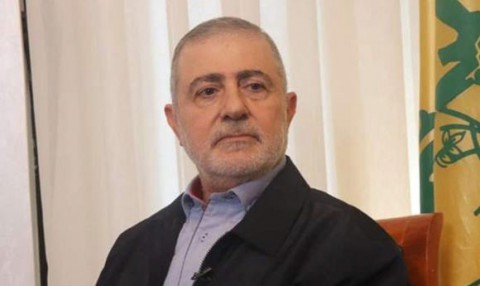The Bashar al-Assad regime has embarked on a strategic maneuver, seeking to reposition itself as a significant regional player, partly to break out of its isolation and partly to secure financial advantages amidst Syria’s dire political and economic crisis.
In a surprising move, Major General Hossam Louka, head of the regime’s General Intelligence Service, has facilitated dialogue between the UAE and Hezbollah. This development is noteworthy given Hezbollah’s designation as a terrorist organization by the UAE, accused of destabilizing the security of the Persian Gulf, while Hezbollah, in turn, has labeled the UAE a “den of Zionists.”
Reportedly, Louka has diligently worked over recent months to mediate between Hezbollah and the UAE, offering political and security assurances that the regime claims it can uphold.
Wafiq Safa, leading Hezbollah’s liaison and coordination unit, travelled to the UAE accompanied by a delegation on a private plane. His visit coincided with the arrival of the Syrian intelligence chief, Major General Hossam Louka. Sources indicate that Safa is scheduled to meet with UAE National Security Adviser Tahnoun bin Zayed and UAE Intelligence Director Ali al-Shamsi. This marks a shift away from the previous diplomatic involvement of General Security Director Abbas Ibrahim.
The negotiations, ongoing since the inception of Operation Al-Aqsa Flood, were initiated at the personal request of Assad to his Emirati counterpart, Mohammed bin Zayed. Safa’s visit aims to address several key issues, including the establishment of a lasting political relationship between Hezbollah and Abu Dhabi. This move leverages the perceived thaw in Gulf-Iran relations, potentially impacting Lebanon and Syria. Of particular interest is the discussion surrounding the Lebanese presidential candidacy, with reports suggesting the UAE’s support for George Khoury, known for his ties to Abu Dhabi, and his favorable relations with both the Syrian regime and Hezbollah.
This strategic realignment is occurring against the backdrop of strained relations between Saudi Arabia and the UAE. Assad and Hezbollah are capitalizing on these regional dynamics, exploiting Arab divisions to foster closer ties with various nations.
Hezbollah aims to allay Abu Dhabi’s security concerns, offering assurances that no subversive activities will be conducted within the UAE.
This article was translated and edited by The Syrian Observer. The Syrian Observer has not verified the content of this story. Responsibility for the information and views set out in this article lies entirely with the author.


